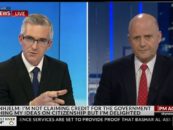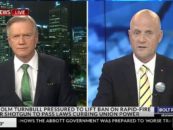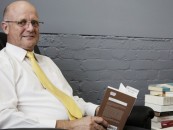A strange thing happened during the election campaign. My phone stopped ringing.
For some reason, many of the political journalists who have been in regular contact with me over the past two years decided my opinion would not be required during the election campaign.
Some of these people then wrote about the likely outcome in the Senate. Typically, their views were articles based on someone’s opinion and repeated myths they had heard somewhere else: the government was clearing out the cross bench, and populists were likely to be elected because everybody says so.
The fact that more cross benchers were likely to be elected in a double-dissolution election went against the narrative. It was just too difficult for most of them to get their heads around.
Some agreed that I had a chance but certainly, none would listen to the suggestion that the Liberal Democrats had a great chance of having senators elected in other states.
You might argue that we should not expect too much because minor parties are not part of the main game of who would form the next government. You would have a point, but then that would not explain why Richard Di Natale seemed to be all over the mainstream media for eight weeks.
It seems particularly odd to me, because the Greens ran fourth to the Liberal Democrats in the Senate voting for NSW in 2013. The Greens get great media coverage, are well branded, and have an army of volunteers. And yet their vote does not change a great deal from election to election. This suggests that a large number of people have heard the Greens’ message and rejected it.
But this did not prevent the media from dutifully reporting on their entirely predictable announcements, always involving giving away ever-increasing sums of imaginary taxpayers’ money.
Fight for survival
Meanwhile, one of the great untold stories of the election campaign was the fight for survival by minor parties – representing about one-third of voters in the Senate – in the face of changes to voting that were designed to lock them out of parliament forever. Our combined efforts certainly did make a difference in some lower house seats, and continues to be the big story of the Senate.
All political journalists were invited to our strategy meetings to find out what we were planning. Nobody turned up. And yet they were still happy to quote politicians from the major parties talking about the minor parties’ “secret back room deals”.
It seems that while the vote for minor parties has increased significantly in recent years, traditional media coverage has failed to keep up – even when the recalcitrant cross bench was supposedly the reason for calling the election in the first place.
This lack of coverage would explain why minor parties had to resort to various stunts to attract anyone’s attention, such as Pauline Hanson driving monster trucks and Bob Katter playing cowboys and Indians with his opponents. For me, it involved bypassing mainstream media altogether by producing a range of quirky little films and reaching out to special-interest groups via social media.
I hope that this contributed some colour and movement to an otherwise dreary election campaign, but it’s arguable what it contributed to the overall quality of debate.
Prank call
During the final week, my media adviser was happy to receive his first phone call of the campaign from the ABC’s 7.30 program. It eventually turned out the only reason they were calling was to try and find out my movements so that The Chaser could prank me. They showed up at my house with homophobic slogans on a van, and alarmed my wife in the process.
All of this means there is little real scrutiny of Senate candidates. Even Derryn Hinch was rarely asked questions about the things he would be expected to vote on, despite being pretty much a policy-free zone. While media coverage of the Senate race remains so poor, the electorate will only get to know senators after they are elected.
Even more seriously, it’s not just the journalists who don’t seem to understand what it takes to be elected to the Senate. Many people in the House of Representatives don’t seem to get it either, which is the only explanation I have for Malcolm Turnbull’s decision to call the election in the first place.
David Leyonhjelm is the Liberal Democrats Senator for NSW.








